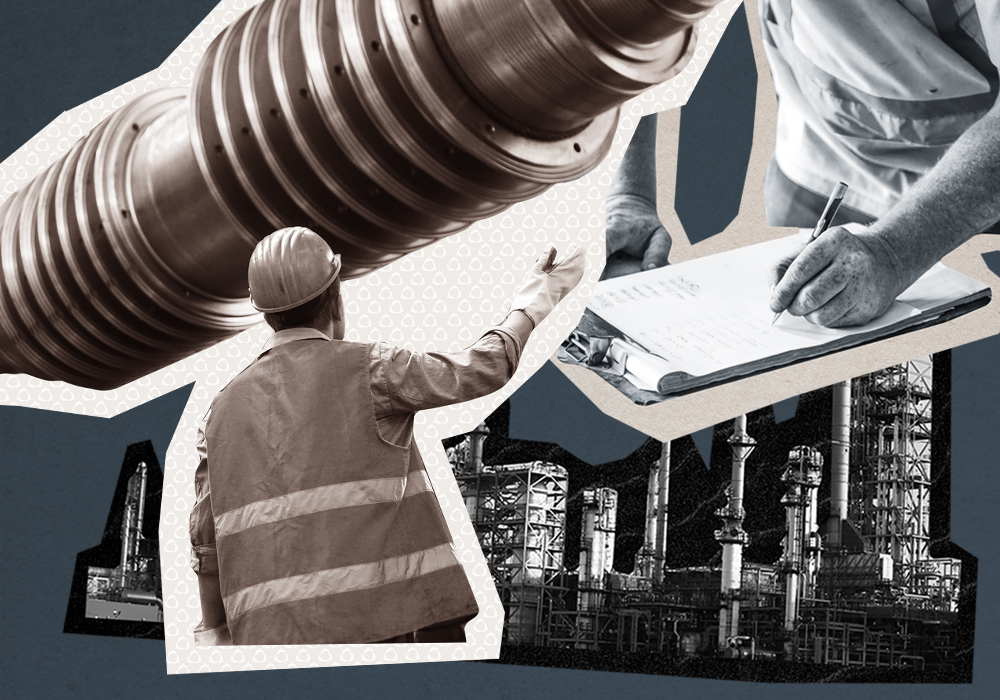Skilled workers faced a dark reality with the onset of Alberta’s oil and gas crisis in 2014. 100,000 industry jobs were lost and, since then, the job market hasn’t been the same. [1] This crisis continues to weigh hard on workers for many reasons, one of them being the accustomed high pay. After all, oil and gas jobs have long been known for offering generous salaries; as of 2013, it was estimated that workers earned an average of $130,000 USD per year.[2]
But with the relentless cycle of layoffs in motion ever since, the chances of workers moving on with their careers while earning a similar salary have become a significant struggle. As of 2017, many oil and gas workers still didn’t have jobs. As a result, they often retired or accepted entry level jobs in other industries, which generally paid much less than their previous salaries. [1]
Today, oil and gas layoffs continue. Fortunately, there are companies that have proved that, with some help, Calgary’s oil and gas workers can successfully transition to another industry. Skilled workers who have lost their oil patch jobs are now searching within industries they had never previously considered.
President of Higher Landing, Jackie Rafter, highlighted the difficulties that these people face in the Financial Post. She says that for those suffering from layoffs, it is not a matter of simply switching industries, but also recovering from the trauma caused by the oil and gas crisis.
“It’s affecting people emotionally, financially, professionally, socially and it’s putting a lot of pressures on their families and their careers. And often they get into a panic mode. It’s a real struggle to get them past that.”[1]
“There are jobs in technology, manufacturing, real estate, she said, but it will take years to clear the oilpatch’s jobless bulge, and many openings are in the hidden job market, which means they are not advertised because employers don’t want to be inundated with résumés.”
Although some industries are difficult to access for skilled oil and gas candidates, it’s important to note that new opportunities will likely exist in the very place where they lost their current role. With the job losses in oil and gas sending skilled workers to other industries, it is inevitable that the oil and gas sector in itself will continue to evolve. According to a PetrolMLI study [3], the industry and its jobs will evolve for a variety of reasons. And with that will come new opportunities.
“Continued efforts by both industry and governments to make oil and gas development economically and environmentally sustainable are changing the skill requirements of the energy sector. Occupations not traditionally considered oil and gas jobs will be more in demand – those such as data management and analytics specialists, instrumentation technologists and software engineers. Increasing numbers of natural science professionals and environmental service workers will also be required. Meanwhile, field workers will be expected to have both mechanical and digital skills, as they use increasing amounts of data analytics for decision-making.”[4]
Every industry experiences cyclical changes and some are worse than others. The oil and gas crisis has proved to be one of the most devastating in Canada’s employment history. While these changes can be shattering, options do exist although they are not always easy to decipher. The evolving energy industry will replace traditional skilled jobs with new ones and will fit them with those who are willing to adapt. For those who decide to search elsewhere, it’s a matter of understanding that your skills are transferable in one way or another, no matter where you decide to go.
Cited works
[1]Cattaneo, Claudia. “100,000 Jobless Energy Workers Struggle for a Place in the New Economy.” Financial Post. September 8, 2017. Accessed September 20, 2019. https://business.financialpost.com/commodities/energy/100000-jobless-energy-workers-struggle-for-a-place-in-the-new-economy
[2] Healing, Dan. “Oil and Gas Salaries Average $130,000: Survey.” Calgary Herald. September 4, 2014. Accessed September 20, 2019. https://calgaryherald.com/business/salaries average Survey/9719742/story.html
[3]“A Workforce in Transition: Oil and Gas Skills of the Future.” PetroLMI, June 2018. https://careers-oil-gas.s3.amazonaws.com/publications/31/en/A_Workforce_in_Transition_Oil_and_Gas_Skills_of_the_Future.pdf
[4] Energy Safety Canada. “Canada’s Oil and Gas Workforce Skills and Occupations Are Shifting, Says PetroLMI Report.” GlobeNewswire News Room. June 27, 2018. Accessed September 20, 2019. https://www.globenewswire.com/news-release/2018/06/27/1530469/0/en/Canada-s-oil-and-gas-workforce-skills-and-occupations-are-shifting-says-PetroLMI-report.html
By Kevin Britton




